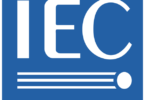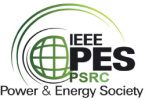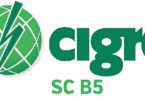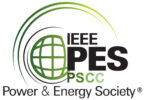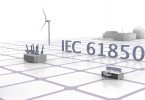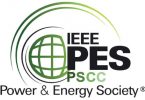by Craig Palmer, PowerComm Solutions, USA
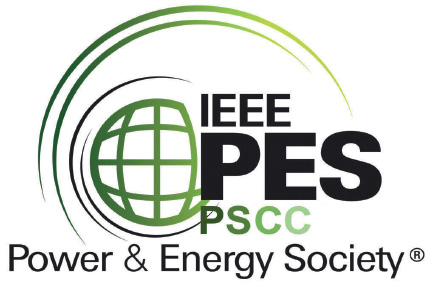
The IEEE Power & Energy Society’s Power System Communications & Cybersecurity Committee (IEEE PES PSCCC) met in-person during the week of May 13-16, 2024, in Buffalo, NY, where the only things hotter than the wings were the working group discussions! Many participants also had an opportunity to enjoy nearby Niagara Falls.
Per standard operating procedure, the PSCCC meeting series was a joint one with the IEEE PES’ Power System Relaying and Control Committee (PSRC). 73 attendees expressed interest in PSCCC work with 14 virtual attendees, and 4 Newcomers in-person at the Newcomers’ session.
On Monday evening, the committees’ participants got together for a dinner and awards ceremony where awards were presented to various PSCCC and PSRC working groups. This networking opportunity is always one of the highlights of the meetings, and this week’s was no exception. Special congratulations to the Optical Fiber Subcommittee (F0) which received the PSCCC’s 2023 Outstanding Standard or Guide Award for their IEEE 1595-2022 Standard for Testing and Performance of Optical Phase Conductor (OPPC) for Use on Electrical Utility Power Lines.
Following are some highlights from the different subcommittees of the PSCCC:
Power Line Carrier Subcommittee (C0): Task force C3TF met on Monday afternoon to discuss a new report with the working title “Special Topics in Power Line Carrier Applied to Power Transmission Lines”. The report will supplement the PSRC’s excellent Special Considerations in Applying Power Line Carrier for Protective Relaying and Redundancy in Coupling Power Line Carrier Channels to the Power Line. New topics will include a look at modal analysis considerations for different line topologies, user experiences with coupling for redundancy, and understanding the effects of inverter-based resources (IBRs) on power line carrier channels.
Wire Line Subcommittee (E0): The Wire Line Subcommittee is seeking participation from individuals with an interest in a new guide, IEEE-P487a Introductory Information for Determining the Ground Potential Rise and Induced Voltages for the Design of Communications Installations at Electric Supply Locations. For more information, see contact info below.
Protocols & Communications Architecture Subcommittee (P0): Congratulations to working group P10! P10 received publishing approval for new standard IEEE-2664 Standard for Streaming Telemetry Transport Protocol (STTP). From the standard’s scope: This protocol is initially designed for streaming power system data over Internet protocol (IP) communication systems. It is focused on streaming real-time measurements but can be used with any type of continuously flowing data. It features built-in security and lossless data compression options for efficient transport.
P0 also formed a new task force which will write a report on quality assessment, design-for-reliability, and risk-informed decision making, and their impact on communication protocols and architectures for electric power systems.
Cybersecurity Subcommittee (S0): S0 working group S8 – IEEE-P2658 Guide for Cybersecurity Testing in Power Systems will be forming an IEEE-SA ballot pool to gather balloters for this standard; be sure to join this ballot body if you are interested in balloting the standard. Working group S17 – Use of Software Bill of Materials (SBOM) in the Energy Sector – discussed possibly meeting jointly with Department of Homeland Security’s Cybersecurity & Infrastructure Security Agency (DHS-CISA). This is one of several joint working groups between the PSCC and PSRC.
Hot topics at PSCCC: The PSCCC has several groups involved in work related to IEC 61850, as well as Centralized Protection & Control (CPC) / Unified Grid Control Platform (UGCP) development. If you are involved in these new technologies and looking to contribute expertise while learning from other industry experts, the IEEE PES PSCCC is a great place to be. Work is underway to develop a beginner’s guide to IEC 61850, to revise IEC 61850-9-3-2016 (PTP profile), to develop a standard for securing GOOSE and SV messages, and to develop a roadmap for new or existing standards to address issues related to CPC / UGCP systems.
To contact the PSCCC leadership, visit the PSCCC website at https://site.ieee.org/pes-pscc/. And as always, be sure to follow @IEEE_PES_PSCC on Twitter and IEEE-PES-PSCC on LinkedIn for other news and announcements from the Committee!
Biography:

Craig M. Palmer received his Bachelor of Science in Electronics & Computer Engineering from the New Jersey Institute of Technology (NJIT) in 2011. He has worked on power system protection and communications since then, first with RFL Electronics in Boonton, NJ. He is presently Lead Application Engineer at PowerComm Solutions, where he focuses on Power Line Carrier applications for high-speed transmission line protection schemes. He is a participant in the IEEE Power System Relaying & Control Committee (PSRC), a member of the Power Line Carrier subcommittee (C0) in the Power System Communications & Cybersecurity Committee (PSCCC), present Secretary of the PSCCC, and a Senior Member of IEEE.



